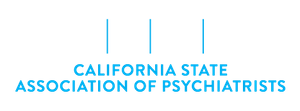eRx Flexibility for Low Volume Prescribers
AB 852 (Wood) will provide exemptions to e-prescribing requirements for low volume prescribers. The bill will also provide exemptions for practices affected by federal, state or local emergencies or disasters. California’s e-prescribing mandate took effect in January of this year, it has proven to be a costly burden for low volume prescribers. E-prescribing software often comes with a monthly subscription cost, and for providers who write only a handful of prescriptions a year, the software can cost upwards of $20 per prescription. This bill will align California law with federal regulations, and ease this burden at a time when physicians are still reeling from the effects of the COVID-19 pandemic. AB 852 will provide e-prescribing exemptions for providers who issue 100 prescriptions or less in a year, are practicing in areas affected by natural disasters, officially declared disaster or an emergency zone, or are granted a waiver based on other extraordinary circumstances.
California’s Data Sharing Agreement
The California Health and Human Services Agency (CalHHS) has opened its new online portal to allow practices to sign California’s Data Sharing Agreement. The agreement is part of the state’s new Data Exchange Framework meant to improve health information exchange.
Physician practices and medical groups are required to sign a template Data Sharing Agreement (DSA) by January 31, 2023.
Signing the agreement is one of the first steps in complying with California’s new Data Exchange Framework. The goal of the framework is to create a statewide data sharing agreement to expedite and expand the exchange of information among all health and human services organizations throughout the state.
The DSA is meant to serve as a contract between physician practices, hospitals, health plans, and other health care entities stating that they will make data available to one another upon request. The DSA lays out the parameters of that agreement and outlines what information needs to be exchanged, privacy and security standards, and permitted uses of data.
A new California law that takes effect January 1, 2023, requires California physicians to provide patients with a written or electronic notice about the availability of the federal Open Payments database. It also requires physicians to post in their offices and on their websites a notice informing visitors about the Open Payments database, which can be used to search payments made by drug and medical device companies to physicians, physician assistants, advanced practice nurses and teaching hospitals.
Open Payments Database
Under federal law, drug and medical device manufacturers are required to report their financial interactions with physicians – including consulting fees, travel reimbursements, research grants and other gifts. Any payments, ownership interests and other “transfers of value” are reported to the Centers for Medicare and Medicaid Services (CMS) for publication in the public Open Payments database.
Open Payments data is published annually by June 30, and physicians are able to preview the data attributed to them during a 45-day, pre-publication review and dispute period that runs from April 1 to May 15. Physicians are encouraged to review the data attributed to them during the review period.
Physicians who believe their data contain discrepancies can initiate a dispute with the reporting entity. This gives the reporting entity an opportunity to correct the information before the data is made public.
Disputes can be initiated until the end of the calendar year in which the record was submitted, but disputes initiated after the end of the review and dispute period will not be reflected in the initial publication. For more information, visit cms.gov/openpayments.
CSAP Co-Sponsored Legislation
CSAP was worked successfully in 2022 with Senator Eggman and others to get three bills into law. We are in constant communication with her and her staff about a new package of bills in 2023.
SB 929 – Expands the Department of Health Care Services’ (DHCS) responsibility in current law to collect and publish information about involuntary detentions to include additional information.
SB 1035 – Allows the court to conduct status hearings with a person who is subject to an assisted outpatient treatment (AOT) order and their treatment team to receive information regarding progress and adherence to the treatment plan, including medication adherence. Requires the AOT program director to include specified information when filling an affidavit affirming the person continues to meet the criteria for AOT.
SB 1227 – Permits a second up to 30-days of intensive treatment period under the Lanterman-Petris-Short (LPS) Act for a person who is still in need of intensive services and the certification for an additional up-to 30 days has begun, as specified.
You can view CSAP’s end of year bill matrix here. You can view the CMA’s end of year bill report here.

